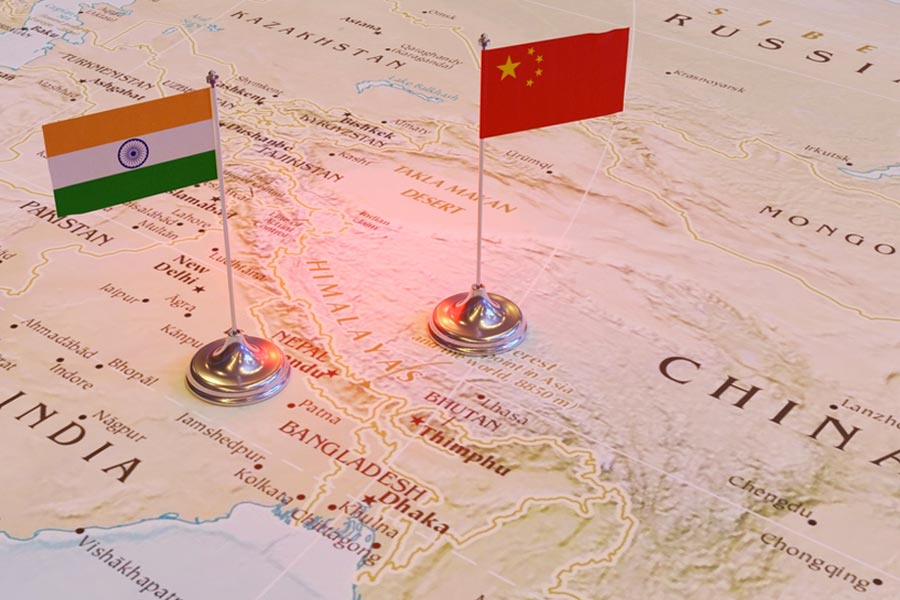India and China have identified the resumption of the Kailash-Mansarovar Yatra, direct flights between the two countries and data-sharing on trans-border rivers as among the first steps to be taken towards restoring a semblance of normalcy in the bilateral relationship.
These three steps, along with media exchanges to facilitate a better understanding of each other, were among the issues discussed by external affairs minister S. Jaishankar with his Chinese counterpart Wang Yi when they met on the sidelines of the G20 summit in Rio de Janeiro on Monday.
Though the Chinese readout on the delegation-level talks did not mention these steps being discussed, the external affairs ministry media release said: “The discussions focused on the next steps in India-China relations…. Among the steps discussed were the resumption of the Kailash Mansarovar Yatra pilgrimage, data sharing on trans-border rivers, direct flights between India and China and media exchanges.”
The two sides also agreed that a meeting of the special representatives and foreign secretary-vice minister mechanism will take place soon in keeping with the directions issued by Prime Minister Narendra Modi and Chinese President Xi Jinping when the two met in Kazan, Russia, last month after the final breakthrough in the disengagement talks over Demchok and Depsang in eastern Ladakh.
At Tuesday’s meeting, Jaishankar said India was committed to a multipolar world, including a multipolar Asia. “Where India is concerned, its foreign policy has been principled and consistent, marked by independent thought and action. We are against unilateral approaches to establish dominance. India does not view its relationships through the prism of other nations,” the external affairs ministry release stated.
While China also talks about a multipolar world, it remains silent on multipolar Asia which India always flags in keeping with New Delhi’s aspirations of being recognised as a regional power.
The Chinese readout billed the Kazan meeting as a restart and new beginning for China-India relations. “This aligns with the fundamental interests of the two peoples, meets the expectations of the Global South, and is in the correct direction ofhistorical progress…”
The Chinese side once again sought to underscore that common interests between China and India far outweigh the differences, adding that both sides should view each other’s development as an opportunity and work together to achieve mutual development and revitalisation.
“This is beneficial for safeguarding the legitimate rights and interests of developing countries and promoting the process of global multipolarisation. Both China and India pursue a non-aligned foreign policy, adhere to multilateralism, and support the democratisation of international relations.”











